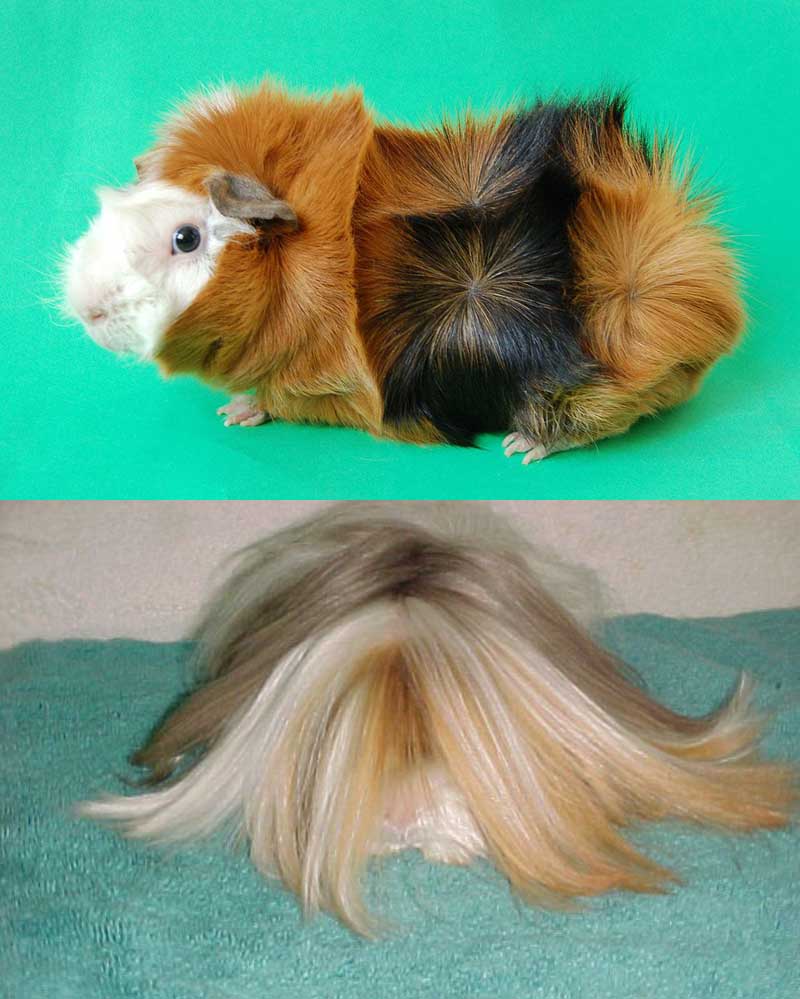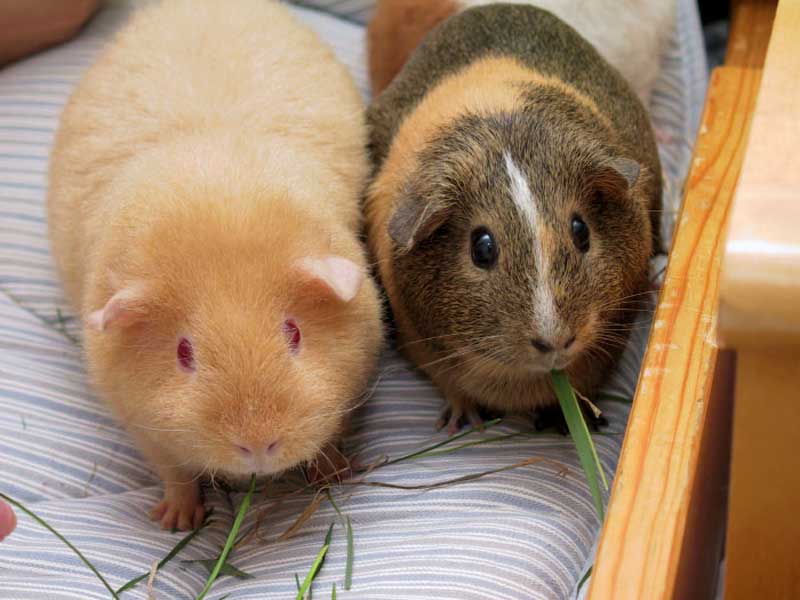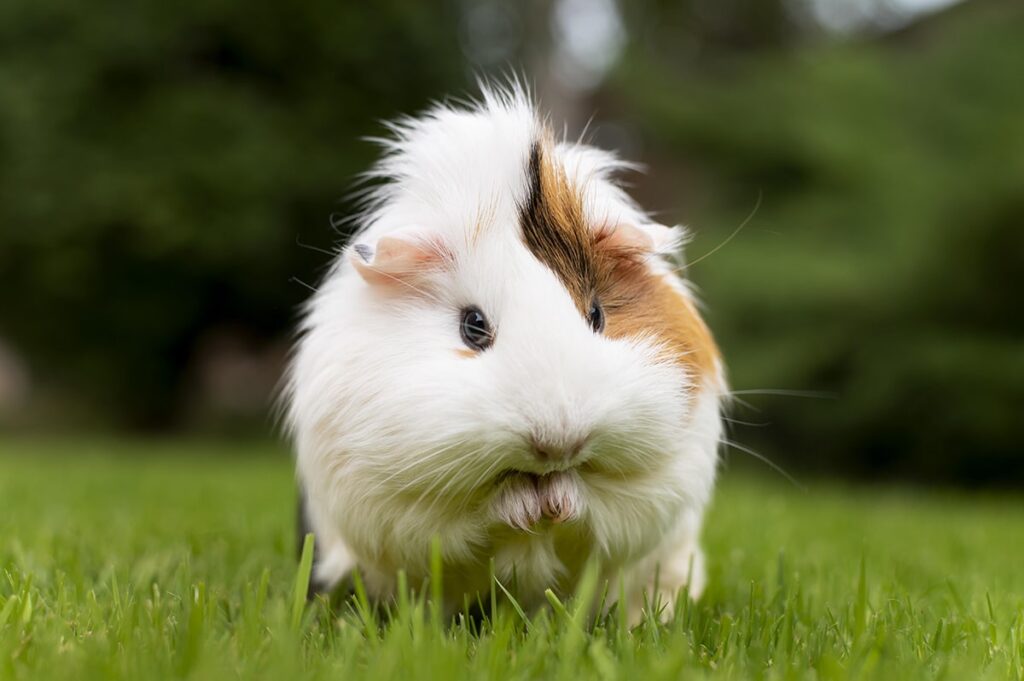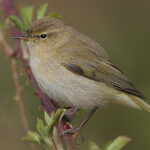- Teeth: Guinea pigs’ teeth grow throughout their lives. They therefore need unlimited access to food so they can constantly grind down their teeth
- Eye fluid: Guinea pigs produce a white, milk-like fluid in the corners of their eyes. The fluid is part of the guinea pig’s grooming routine, but it’s not usually noticed as guinea pigs quickly smear the fluid on their heads when grooming themselves
- Joy: When guinea pigs stretch, it’s a sign that they are relaxed and happy. When guinea pigs jump up and down vertically, this is also a sign of happiness. Baby guinea pigs jump in the same way when playing
- Sight: Although guinea pigs don’t have very good eyesight, they can see in color
- Toes: Guinea pigs have 4 toes on each of their front feet and only 3 on each of their back feet
- Social animals: Guinea pigs are social animals that thrive much better in pairs or packs than alone. Pet guinea pigs should spend time with their owners on a daily basis to thrive
- Age: Guinea pigs that live as pets usually live between 4 and 9 years. Several internet sources claim that 15 years of life is the record age for a guinea pig – however, this record is undocumented
- Night stools: Guinea pigs have two types of feces; 1) “normal” feces and 2) another type of feces that passes through the digestive system twice and is rich in vitamin B and amino acids. This means that guinea pigs – like rabbits, for example – eat some of their own feces. They typically eat it in the late evening, which has given rise to the name ‘nighttime defecation’. The scientific term for the phenomenon is ‘caecotrophi’
- Fur: All guinea pigs have 5 different types of fur, which together make up their entire coat
- Body temperature: A guinea pig’s body temperature is typically 37.2 – 39.4 degrees and due to these relatively high body temperatures, guinea pigs are generally vulnerable to overly hot environments – such as if the weather is hot and/or they are in direct sunlight

Fact: All guinea pigs have 5 different types of fur, which together make up their coat
More facts about guinea pigs
- Birth: Unlike many other baby animals, guinea pigs are born with all their fur, eyes open and teeth fully developed. A few hours after birth, baby guinea pigs can run around and after about 24 hours they can eat solid food – however, they need to nurse with their mother for a while
- Gender maturity: Because guinea pigs are born relatively mature, they also reach sexual maturity quickly. Males can reach sexual maturity at 3-5 weeks of age, while females can reach sexual maturity at 4 weeks. Therefore, young guinea pigs should also be sexed by a veterinarian so that they can be separated into males and females (to avoid multiple litters)
- Activity: Guinea pigs are very active at night and less during the day
- Health conditions: The most common health conditions among pet guinea pigs are: diarrhea, scurvy, abscesses, respiratory problems and skin conditions
- Skin disorders: Skin disorders in guinea pigs can occur due to pregnancy, birth, other diseases, age (both in young and old guinea pigs). Stress can also cause skin problems in guinea pigs and can occur, for example, during relocation or death (if one of the guinea pigs in the herd dies)
- Sound sensitivity: Guinea pigs are very sensitive to loud noises
- Origins: Although guinea pigs are now kept as pets in many countries around the world, guinea pigs originated in the Andes Mountains of South America
- South America: In South America, guinea pigs have long been part of the culture; the Incas sacrificed them to the sun gods and they are still eaten by some of the locals in the Andes
- Vitamin C: Guinea pigs cannot produce vitamin C on their own and therefore need it in their diet to survive
- Social relationships: Guinea pigs can develop relationships with humans and other species
- People: Guinea pigs love to be petted and can fall asleep on people they trust

Fact: Guinea pigs are highly social animals that thrive best when living with their peers





